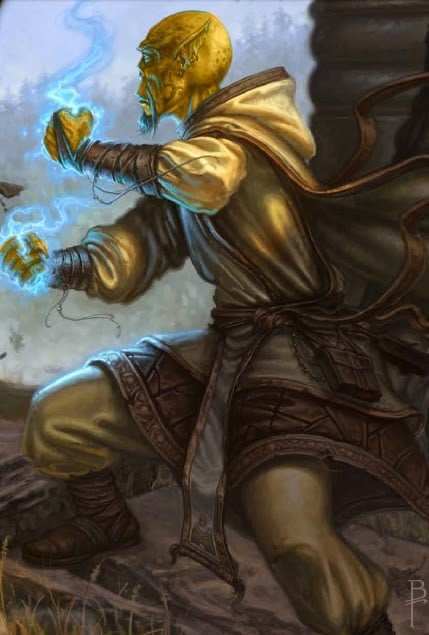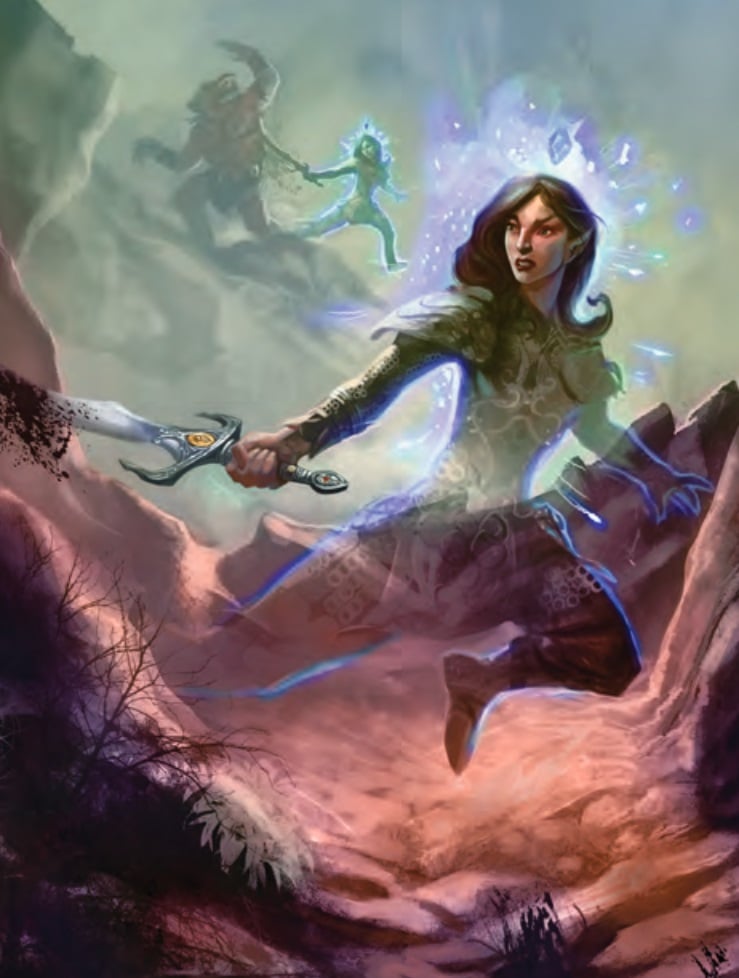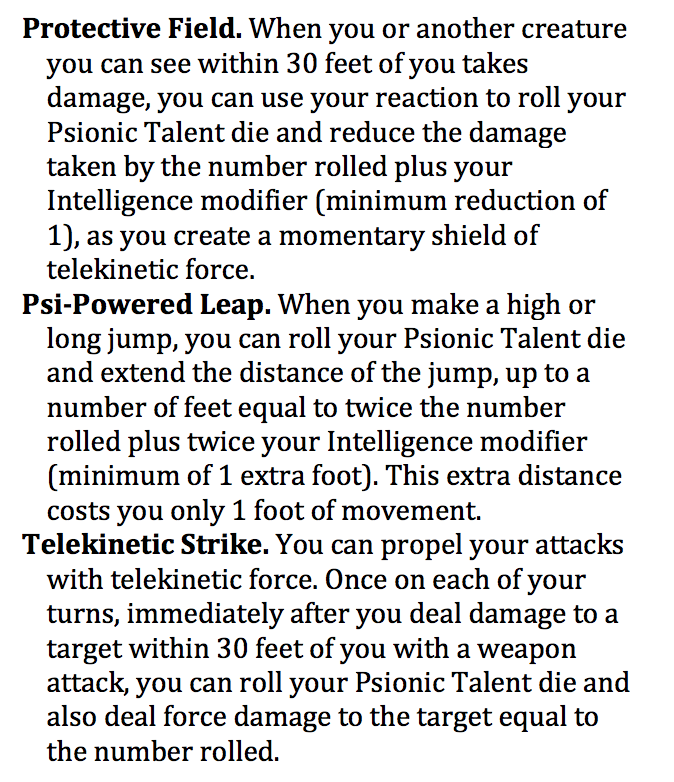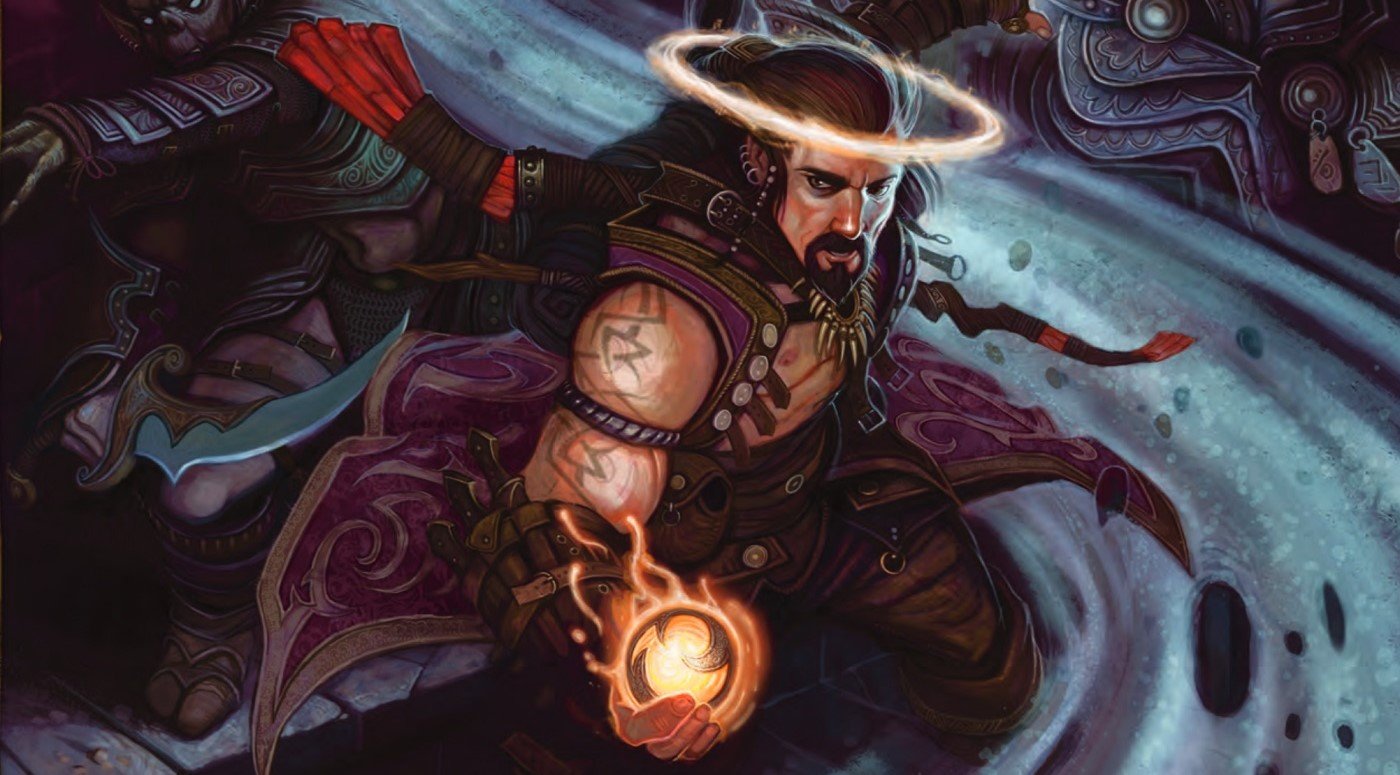D&D: Psionics Are Back – This Time With New Subclasses And Spells
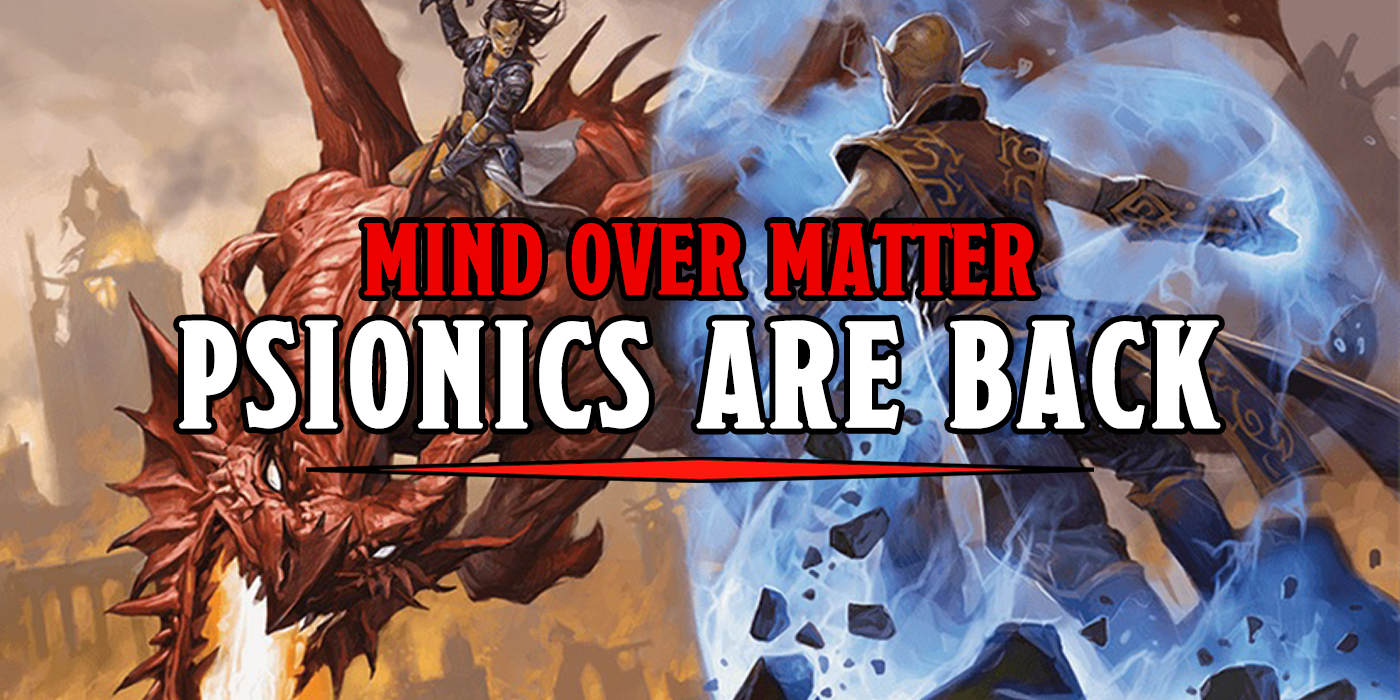

The latest Unearthed Arcana explores psionics once again, this time with revised subclasses, powers, spells, and more. Check it out!
Psionics and D&D have gone together since the early days when Gygax and co. would mess around with powers like ego whip and id insinuation and thought shield to add on a whole system of psionic attacks and defenses which is why you’d see those percentile chances next to certain 1st edition stat blocks. And the whole reason you even have psionics in the first place is likely due to John Wood Campbell Jr., who sort of single-handedly decided what was and wasn’t sci-fi–he’s the reason psionics feel like sci-fi, but magic doesn’t, even though they are functionally the same.
In the latest Unearthed Arcana, Psionics are back once again. This time continuing on in the same, more subclass-oriented method that recent rules had explored. Instead of psionics being a subsystem that you layer on top of the game, having access to psionic powers (or psi as the new rules call them) is something that anyone can potentially do. In fact, subclasses like the Great Old One warlock already do. In this batch of Unearthed Arcana, they officially say farewell to the Mystic, as well as the psionic wizard and accompanying spells.
We’ve decided to say farewell to the mystic and explore other ways of giving players psi-themed powers, as we did with the features of the Great Old One warlock in the Player’s Handbook. In 2019 and now in 2020, we’re enjoying that exploration, looking into providing options (subclasses, spells, and feats) that allow different types of characters to manifest psionic power.
Instead we get three subclasses, the Psi Knight (formerly the Psychic Warrior), the Soulknife for rogues, and the Psionic Soul sorcerer, along with new spells for most classes. The biggest difference for all three classes is the introduction of a Psionic Talent Die. Each of these three classes has a die that starts at a d6 and scales up a die size every few levels, rising to a d8, d10, and d12. When you’re using a psionic ability, it might call for you to roll your psionic talent die and add it to the relevant roll, basically like a bard’s inspiration or a battlemaster superiority die, but these psionic dice have a wrinkle. If you roll the maximum result, it goes down a die size, dropping to a d4 before your stores of psionic energy are exhausted for the day.
Roll a 1 and it goes back up a die size, to its starting value. Every class has a way of refreshing their power, so let’s take a look.
Psi Knight
Like the Psychic Warrior, the Psi Knight is a fighter subclass that augments their physical attacks with telekinetic strikes and mental barriers and use their psionic powers to do cool fighter things. You’ll do that by using your psionic powers to activate your Psionic Talent. This lets you pick from the following options.
As you can see, this is basically the jedi knight subclass. You can force jump, reduce incoming damage, or increase your own. At 7th level you gain Telekinetic Adept, which opens up two more options for your psionic talent usage: Psionic Thrust which lets you empower your strikes so you can move the target ten feet horizontally in any direction, or knock them prone if they fail a strength save. It doesn’t run the risk of using up your talent die, so it’s a nice free upgrade.
Telekinetic Movement on the other hand lets you use the Force to move things around telekinetically. As an action you can move a loose object or a willing creature up to 30 feet, allowing you to move allies or pull disarmed weapons toward you, though doing so reduces your die size by one.
At 10th level Psi-Enhanced Metabolism makes you immune to the poisoned condition and grants you resistance to poison and psychic damage, and at 15th level Bulwark of Force lets you reduce your talent die size by one in order to grant half cover (a +2 bonus to AC and Dex saves), and at 18th level Telekinetic Master lets you reduce your die by one size to cast telekinesis with no spell slot or component.
Soulknife
An oldie but a goodie, this is the psionic rogue. They’re all about manifesting psi-blades, Psylocke/protoss dark templar style, stabbing people with mind laser knives. It’s pretty much as cool as it sounds, and like the fighter, most of your class revolves around a psionic talent die again. This time you can use it to bolster any of your skill or tool proficiency checks, or to grant telepathy to a limited number of creatures for an hour.
Fortunately your Psychic Blades do not require you to have your talent die available. Instead you can just manifest a psycic blade that deals psychic damage equal to 1d6 plus whatever normal modifiers you’d add–and as a bonus action you can make a second attack that only deals 1d4 damage. At 9th level your psychic knives get an upgrade, becoming Soul Knives, which lets you use your psionic talent die to add to your attack roll on a miss, or you can reduce the die size to hurl a knife up to 5 feet x the highest number on your talent die and teleport to it as a bonus action.
Your high level abilities give you sneakier powers–Psionic Veil lets you become invisible for 10 minutes by reducing your die size, while Rend Mind lets you add a stunning effect to your sneak attack.
Psionic Soul
The Psionic Soul sorcerer gets their power from some far-realm or fae or astral-touched creature or background. There’s a cool list of effects that might accompany your magic, depending on the source of your power. As with the other classes, you have the Psionic Talent option as well, which gives you three options, most of which are surprisingly powerful. First up Psionic Discovery lets you unlock a “mind-oriented spell” that you don’t already know by rolling your psionic talent die and picking a spell from Enchantment or Divination that you don’t know (but could cast) and gaining access to that for a few hours.
Psychic Sorcery allows you to cast spells with the power of your mind, it lets you roll your psionic talent die to cast a spell without somatic, material, or verbal components if you roll well enough, and Telepathic Speech lets you communicate telepathically with one other creature.
At higher levels you augment your magic with psychic power, using features like Psychic Strike to deal your psionic talent die in extra damage when you hit a target with a spell and Mind Over Body, which transforms you into a beacon of psionic power:
As a bonus action, you can roll your Psionic Talent die and spend 1 or more sorcery points to magically transform yourself for a number of hours equal to the number rolled. Until the transformation ends, you gain one of the following benefits of your choice for each sorcery point you spent, choosing a different benefit for each point:
- You can see any invisible creature within 60 feet of you, provided it isn’t behind total cover.
- You gain a flying speed equal to your walking speed, and you can hover.
- You gain a swimming speed equal to twice your walking speed, and you can breathe underwater.
- Your body, along with any equipment you are wearing or carrying, becomes pliable. You can move through any space as narrow as 1 inch without squeezing, and you can spend 5 feet of movement to escape from nonmagical restraints or being grappled.
And finally at 18th level, Psychic Aura lets you create a damaging aura of psychic power around yourself, harming foes and halving their speed.
It’s an interesting system, the psionic talent feels a little swingy, but, it feels like an interesting blend between the old system and something 5th Edition related.
Happy Adventuring!

